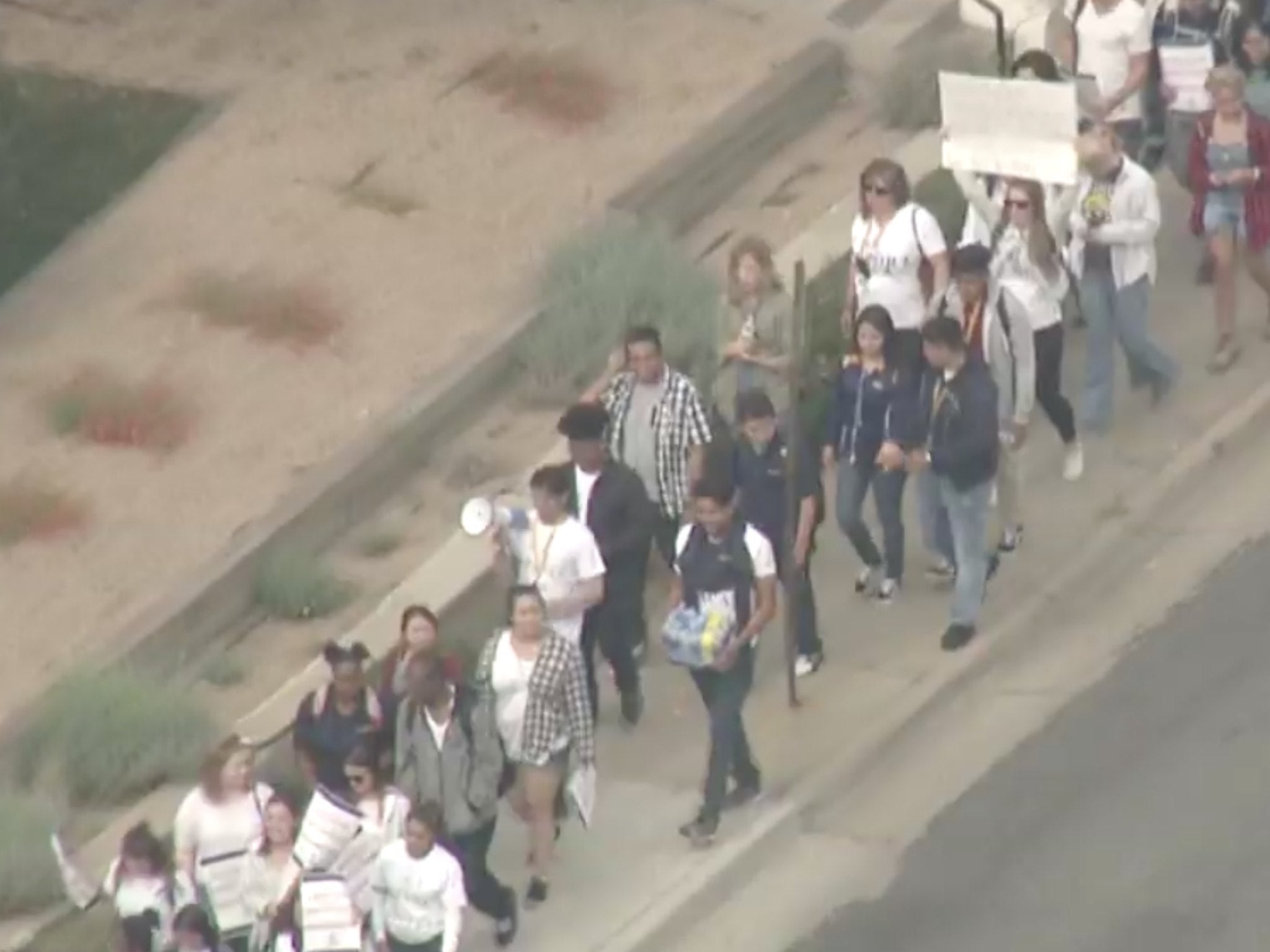DACA: Students march out of schools in protest at Trump scrapping immigration amnesty

Your support helps us to tell the story
From reproductive rights to climate change to Big Tech, The Independent is on the ground when the story is developing. Whether it's investigating the financials of Elon Musk's pro-Trump PAC or producing our latest documentary, 'The A Word', which shines a light on the American women fighting for reproductive rights, we know how important it is to parse out the facts from the messaging.
At such a critical moment in US history, we need reporters on the ground. Your donation allows us to keep sending journalists to speak to both sides of the story.
The Independent is trusted by Americans across the entire political spectrum. And unlike many other quality news outlets, we choose not to lock Americans out of our reporting and analysis with paywalls. We believe quality journalism should be available to everyone, paid for by those who can afford it.
Your support makes all the difference.Students in Denver have walked out of their schools in protest at Donald Trump's decision to end a programme that protected 800,000 young immigrants from deportation.
It was the first day back to school for many across the US, with students looking to make their feelings about the move to end the Deferred Action for Childhood Arrivals (DACA) scheme clear.
The protests in Denver included a number of schools in Denver, with hundreds of students walking out.
As well as Colorado, other student protests are expected in Albuquerque and a number of other areas. Students have also joined protests against the decision outside of the White House in Washington DC.
Beyond the protests, Democrats and civil liberties advocates blasted Mr Trump.
“President Trump's decision to end DACA is a deeply shameful act of political cowardice and a despicable assault on innocent young people in communities across America,” said Nancy Pelosi, the top Democrat in the House of Representatives.
Attorney General Jeff Sessions, who announced the decision to end the programme, said the action does not mean the DACA recipients are “bad people.”
“To have a lawful system of immigration that serves the national interest, we cannot admit everyone who would like to come here. It's just that simple. That would be an open-border policy and the American people have rightly rejected that,” Mr Sessions said.
In a statement issued by the White House, Mr Trump said, “I do not favour punishing children, most of whom are now adults, for the actions of their parents. But we must also recognise that we are nation of opportunity because we are a nation of laws.”
Protests were held around the country in response to the DACA announcement as well. In New York City, activists marched from Centarl Park down Fifth Avenue to Trump Tower, the private residence of the President. For some at that demonstration, Mr Trump had opened their eyes to the importance of issues like the DACA programme and of speaking out on issues they care about.
"Donald Trump's election made me more active," Zoe, a 16-year-old soon-to-be Sophomore told The Independent. Zoe's last name is being witheld because she is a minor and was not with her parents at the demonstration.
Zoe said that she is an American citizen, but had been compelled to begin speaking out since November in order to help the undocumented immigrants she knows at her school, and whom she is friends with. "A lot of people didn't necessarily talk about it."
The DACA program was enacted five years ago by the administration of former President Barack Obama. The programme was geared toward helping young immigrants who had come into the United States illegally as children, when they were too young to make their own decision on the matter. The programme did not provide protections for parents of those DACA recipients, however another programme pushed by the Obama Adminstration sought to do so.
Since 2012, nearl 800,000 undocumented immigrants have received protections throught DACA, which allows young immigants to apply for and receive work permits. Many of those DACA recipients have been able to pursue careers and study in American schools and universities. Many have also started families during that time. A considerable portion of DACA recipients have been in the United States long enough that they known no other home than America, and would not know what to do if forced to move back to their countries of citizenship.
Reuters contributed to this report
Join our commenting forum
Join thought-provoking conversations, follow other Independent readers and see their replies
Comments